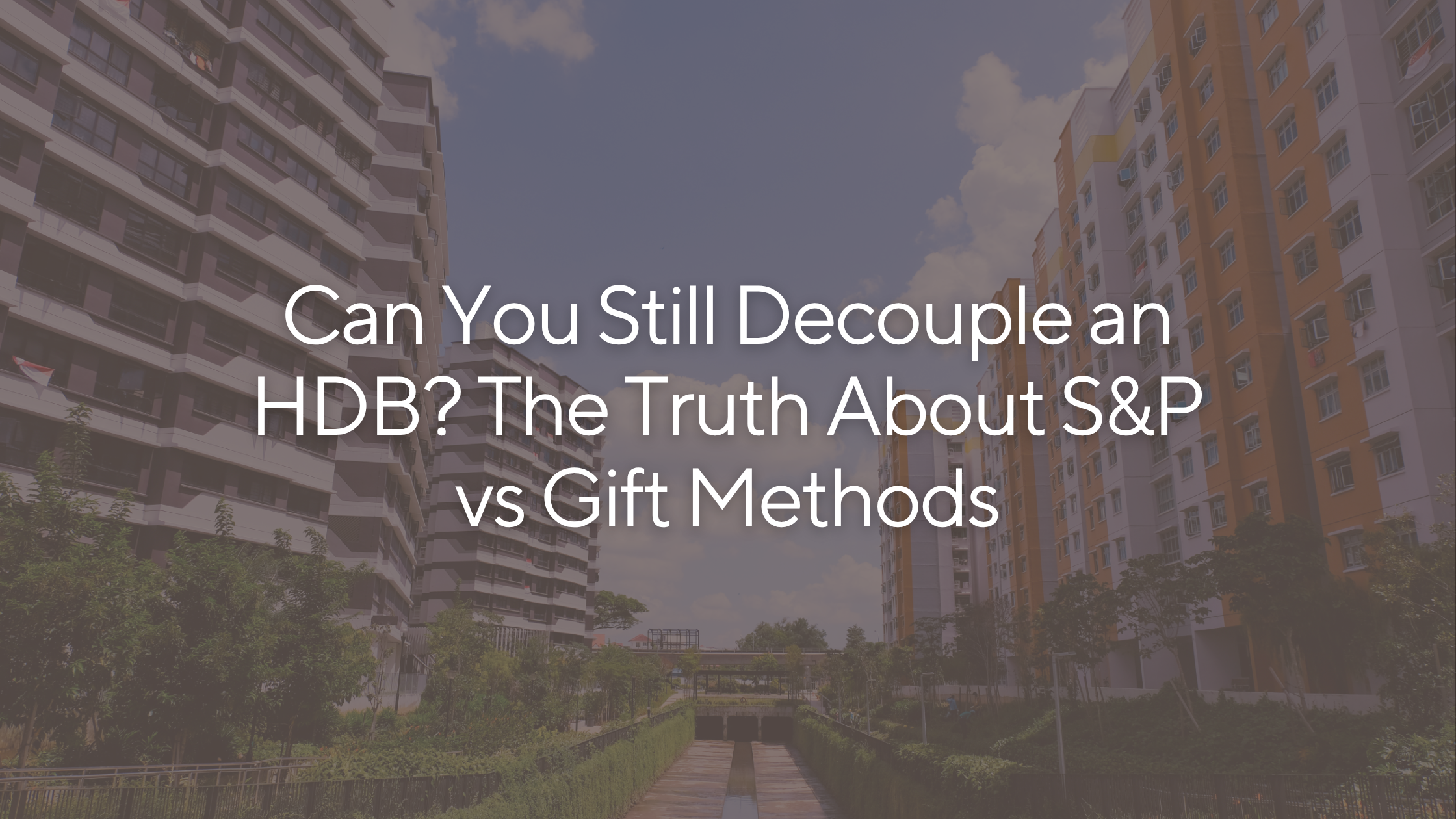Can You Still Decouple an HDB? The Truth About S&P vs Gift Methods
You can no longer decouple an HDB flat in Singapore except through divorce, as the loophole has been closed. However, Executive Condominiums (ECs) can be decoupled after 5 years when they become private property—either via a Sale & Purchase (S&P) agreement or a gift transfer. Both options require full CPF refunds with interest, possible loan refinancing, and legal documentation. A decoupling lawyer can advise on the best approach for your situation.
Decoupling HDB as a direct process is no longer allowed in Singapore—HDB has closed this loophole. Today, the only way to transfer ownership of an HDB flat is through a divorce order. However, for homeowners of Executive Condominiums (ECs), decoupling remains possible after meeting the 5-year Minimum Occupation Period (MOP), when ECs are treated as private property.
When decoupling an EC, you’ll typically choose between a Sale and Purchase (S&P) agreement or a gift transfer. Both are recognised legally, but they carry different implications for CPF, loans, and stamp duties. Choosing the right method depends on your financial situation, CPF usage, and long-term property goals.
Key Takeaways
HDB flats cannot be decoupled except through divorce.
ECs can be decoupled after the 5-year MOP, using either S&P or gift.
S&P involves a formal purchase at an agreed or market value, triggering Buyer’s Stamp Duty (BSD).
Gift avoids BSD, but both owners must refund CPF in full, and outstanding loans must be settled.
A decoupling lawyer ensures legal compliance, smooth CPF processing, and bank coordination.
How the S&P Method Works
Under an S&P agreement:
One party buys the other’s share at market or agreed value.
CPF refunds are made from sale proceeds.
A formal contract provides a clear transaction trail.
Pros
Transparent, easier for banks and CPF.
Clearer refund calculations.
Formal documentation reduces disputes.
Cons
Buyer’s Stamp Duty is payable.
May incur valuation, legal, and refinancing costs.
How the Gift Transfer Works
In a gift transfer:
One owner transfers their share without monetary exchange.
CPF used by both parties must be refunded in full, with interest.
Outstanding loans usually must be cleared.
Pros
No Buyer’s Stamp Duty.
May be cost-effective for simple cases.
Cons
Stricter CPF and loan requirements.
Higher scrutiny in approval process.
Cash top-ups may be needed for CPF refund shortfalls.
CPF Refund Rules
Regardless of method, CPF Board requires full refund of monies used plus accrued interest before ownership transfer is finalised. This applies equally to S&P and gift transfers.
Why a Decoupling Lawyer Is Essential
A decoupling lawyer helps you:
Review eligibility and CPF obligations.
Draft and file the S&P agreement or Deed of Gift.
Liaise with HDB (for divorce transfers), CPF, and banks.
Ensure stamp duties and refinancing are handled correctly.
Quick Comparison: S&P vs Gift
Related Reading
Decoupling HDB in Singapore: Complete Guide to Avoiding ABSD and Unlocking Your Second Property
CPF Refund Rules When Decoupling Your HDB: Don’t Get Caught Off Guard
Do You Need a Lawyer to Decouple Your HDB? Here’s What They Actually Do
Conclusion
While HDB decoupling is no longer possible, EC owners who have met the 5-year MOP can still restructure ownership through S&P or gift. Each method carries different costs and obligations, making legal advice essential to avoid pitfalls and secure ABSD savings.
Contact YY Lee & Associates LLC:
📞 +65 8780 2499
📷 Instagram: @yylee_familylaw
FAQ
-
No, HDB flats cannot be decoupled except through divorce. S&P and gift apply to ECs after the 5-year MOP.
-
Gift avoids BSD, but requires full CPF refunds and loan clearance. S&P has BSD but may be easier to execute with CPF and banks.
-
Yes, both require formal agreements and compliance with CPF and bank rules.

